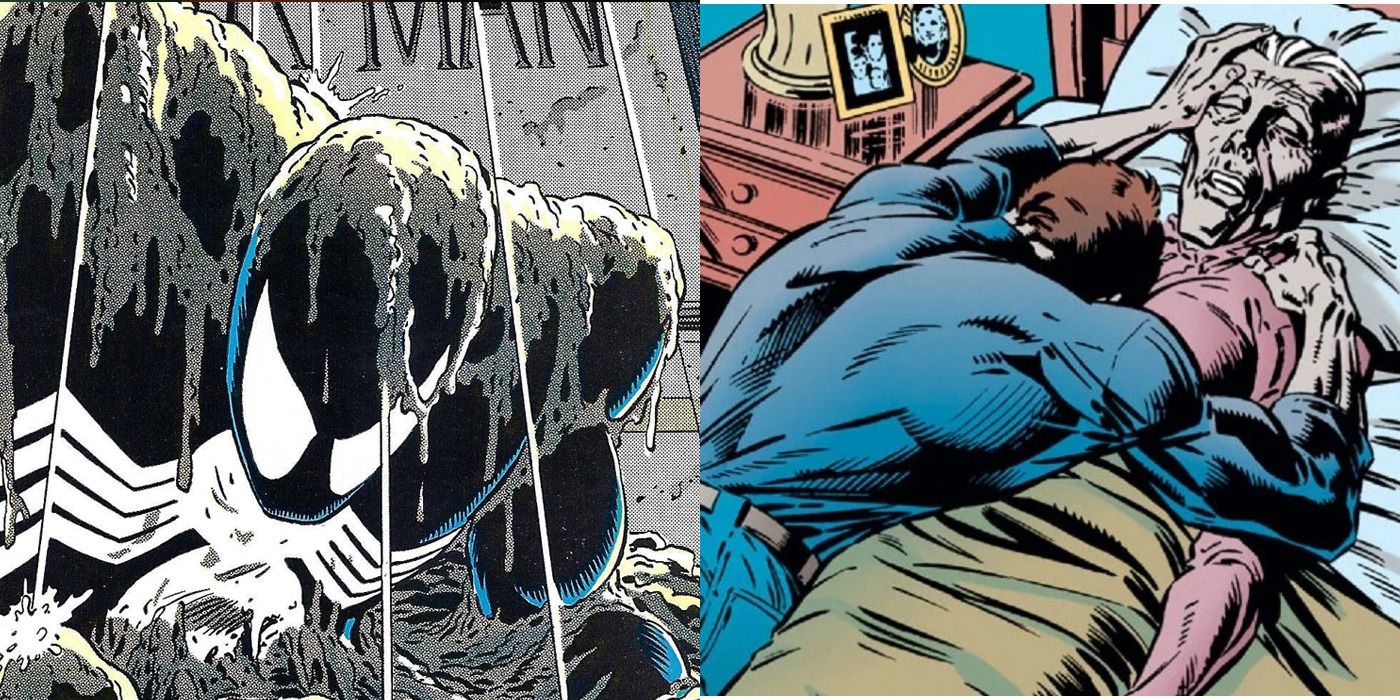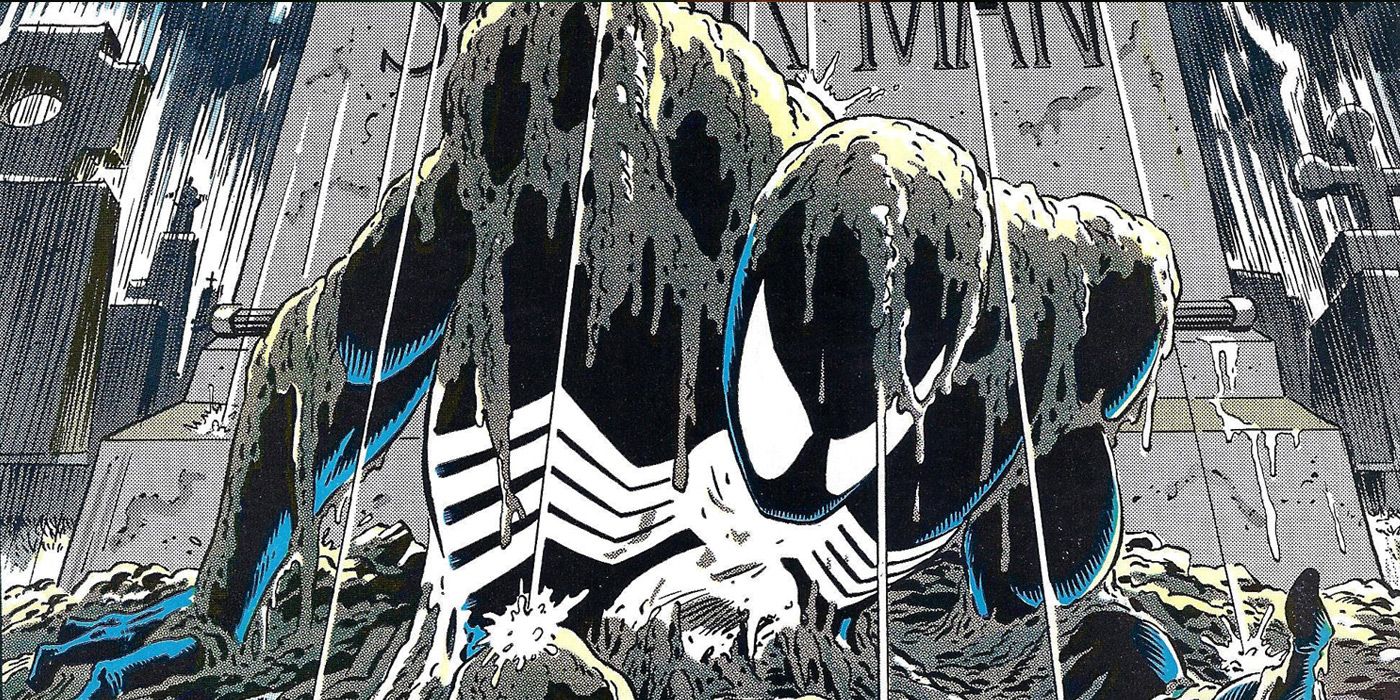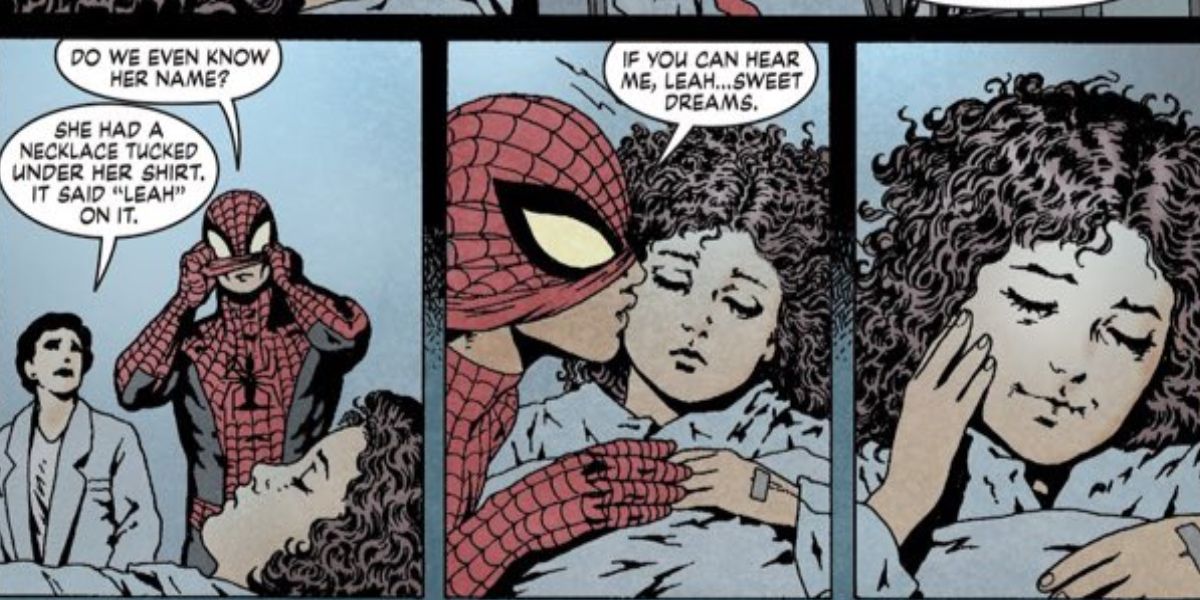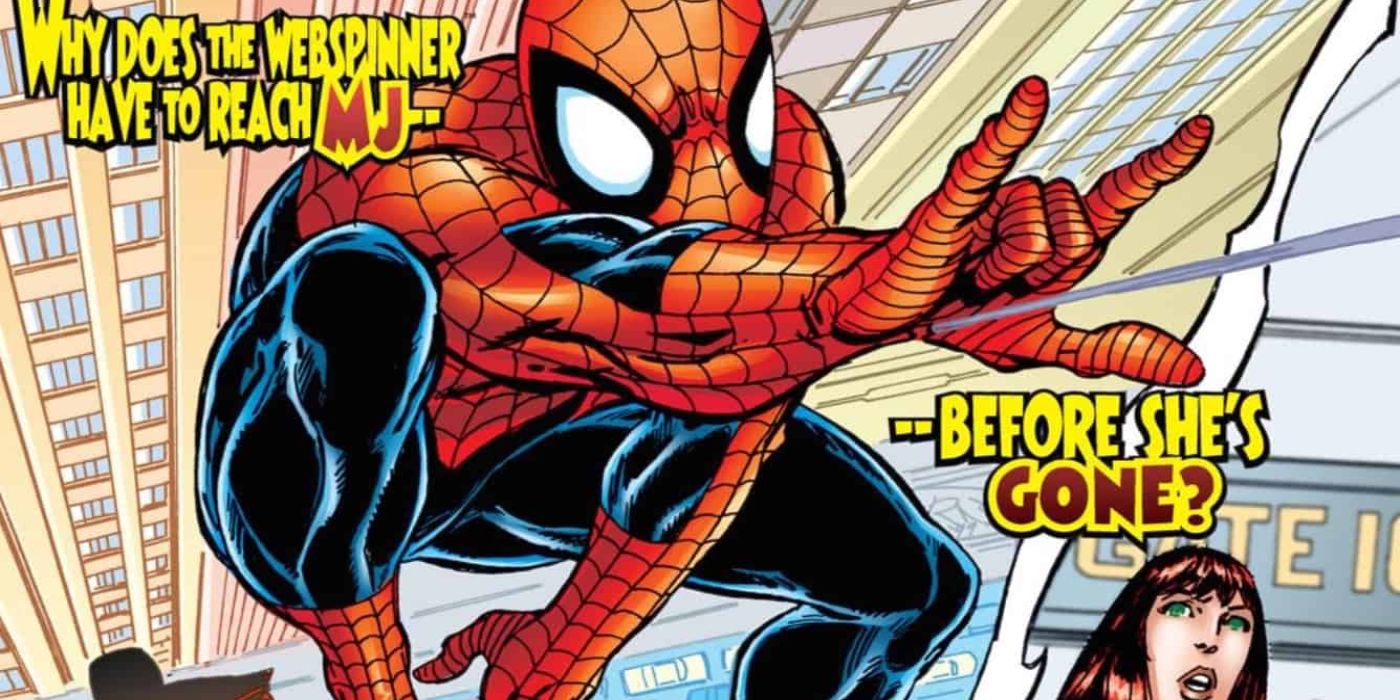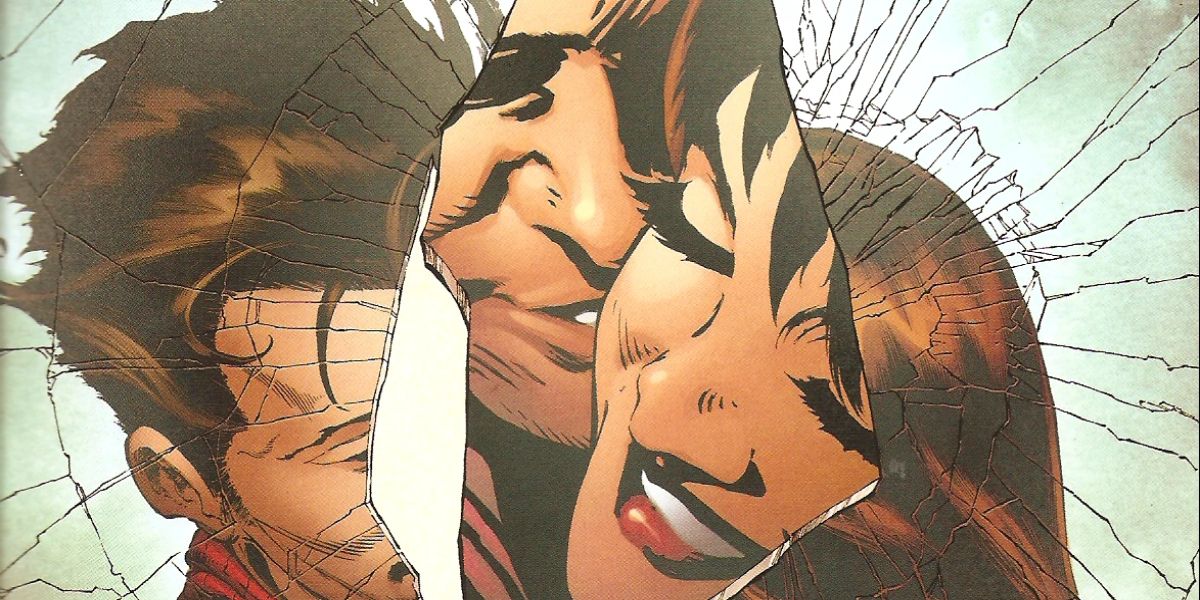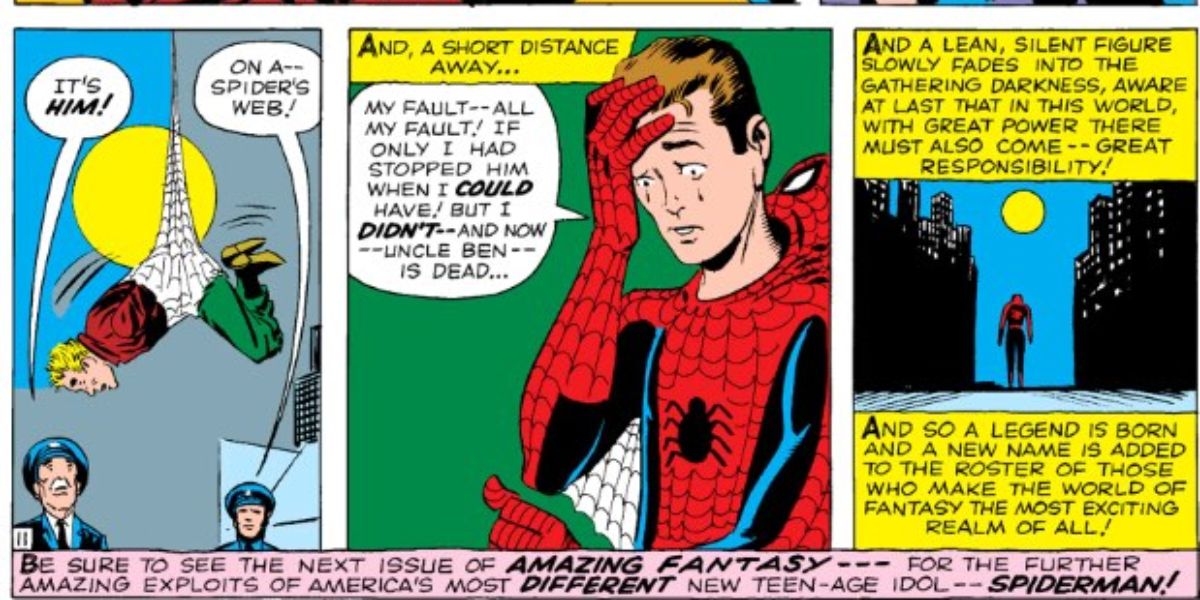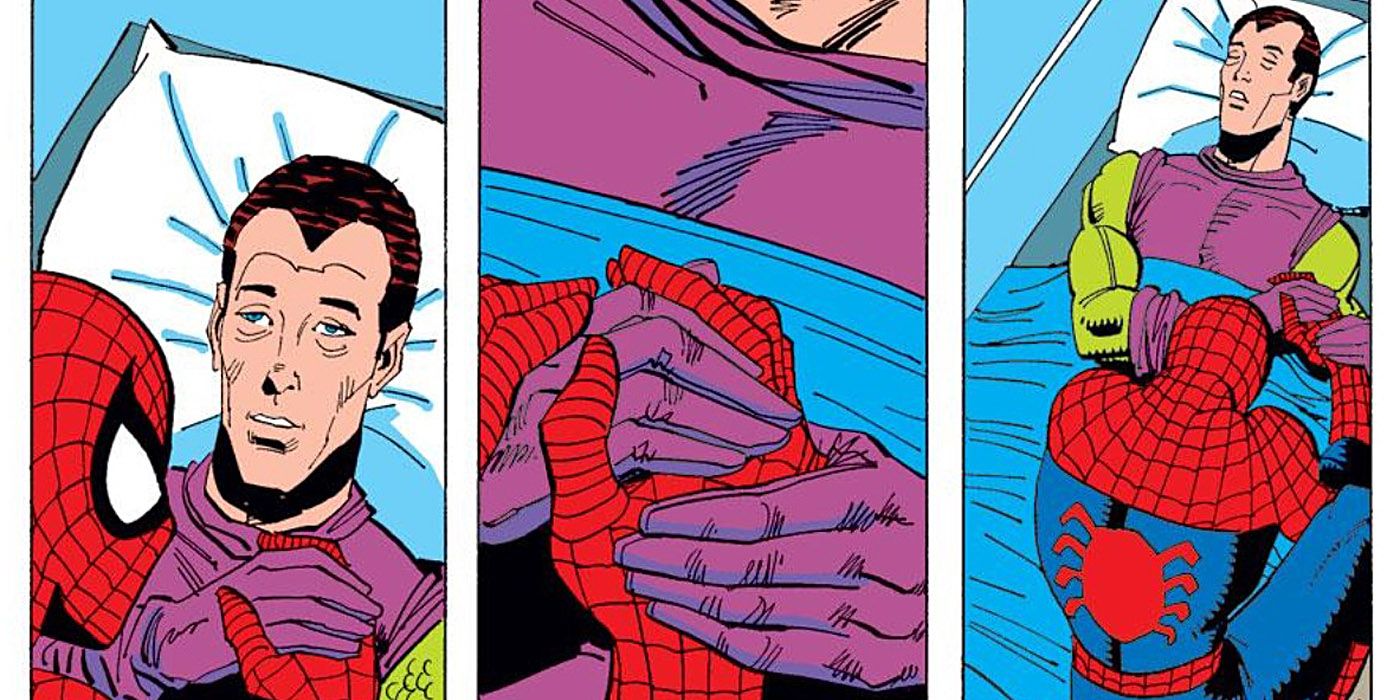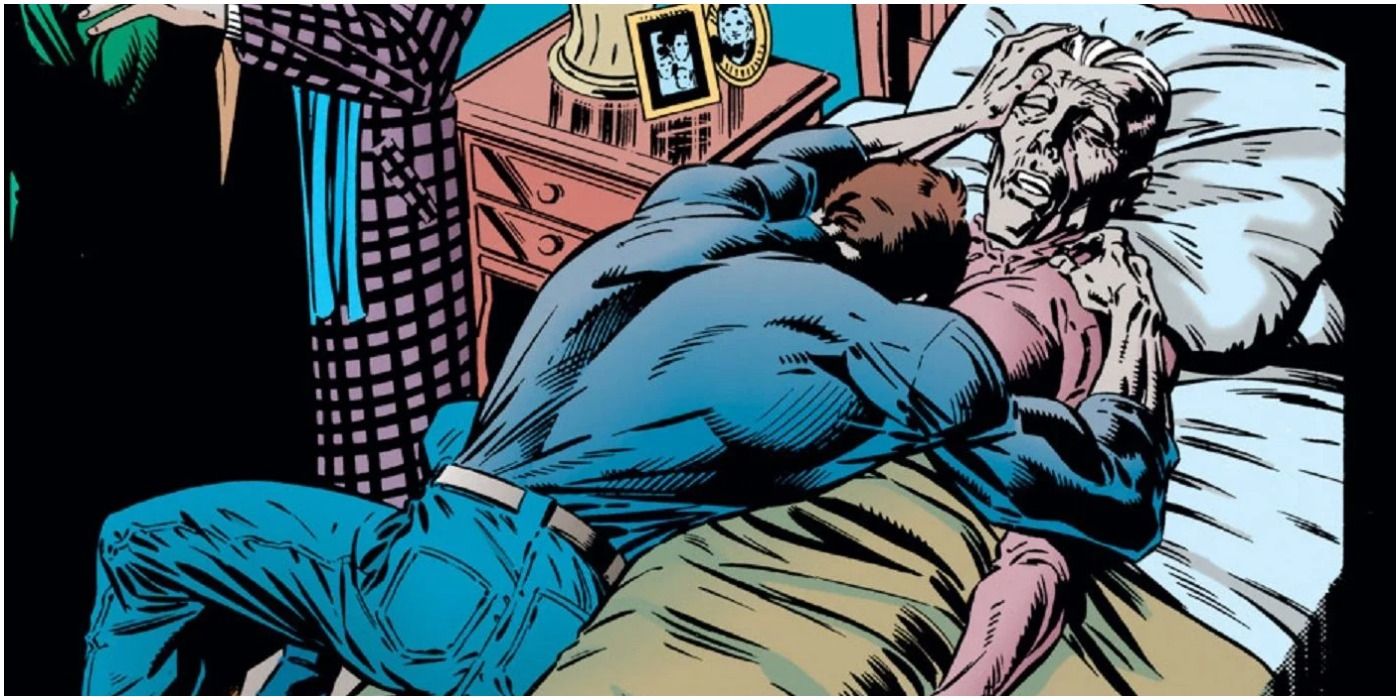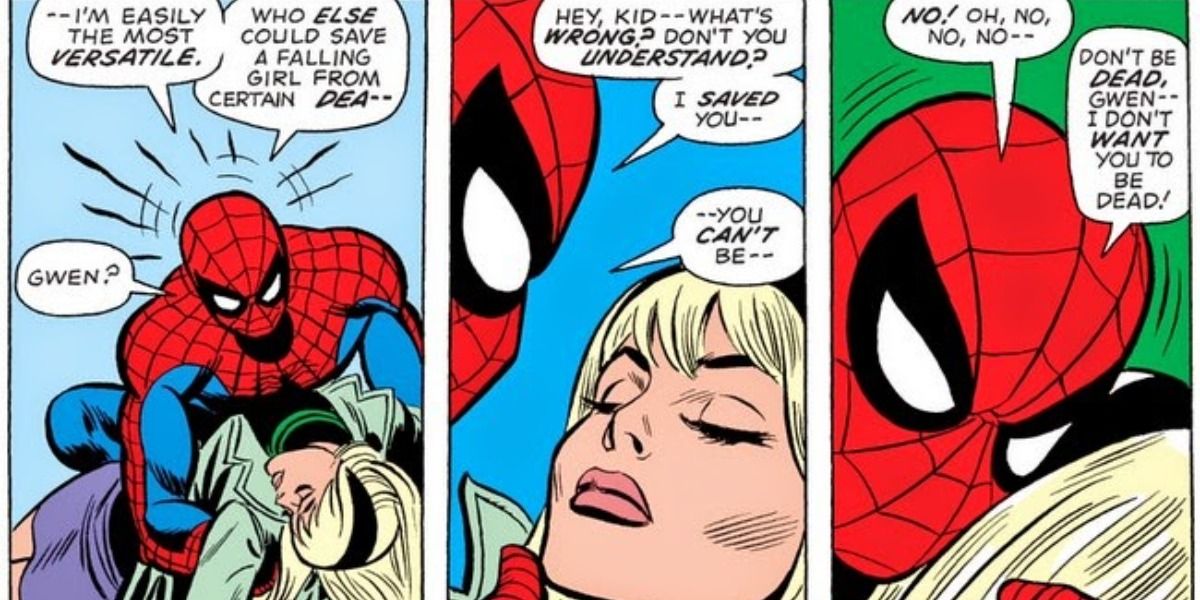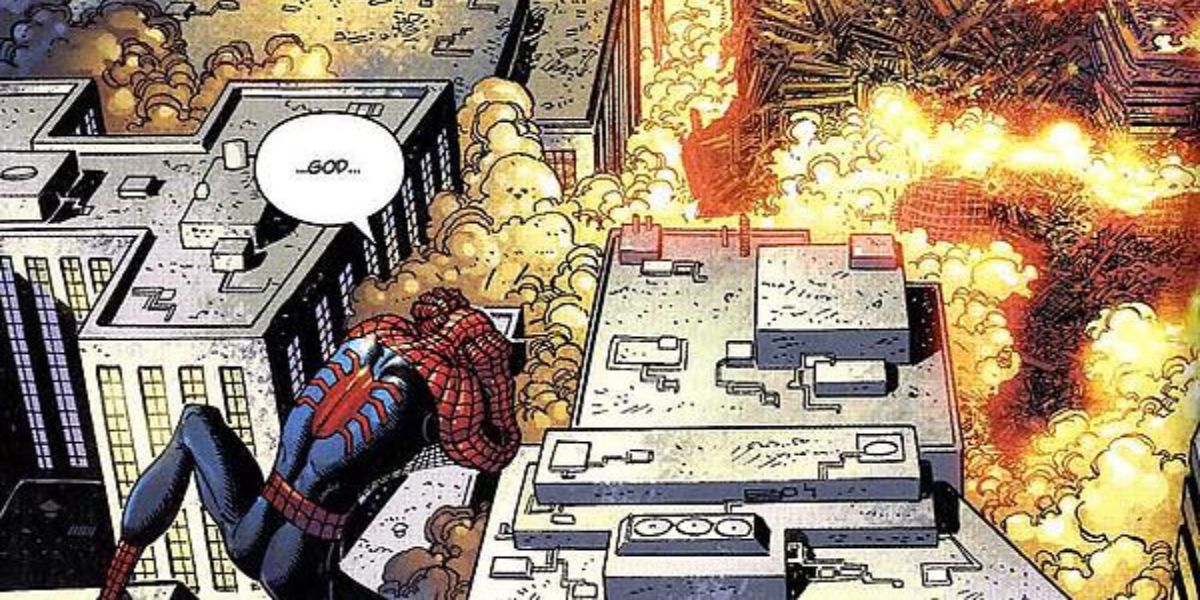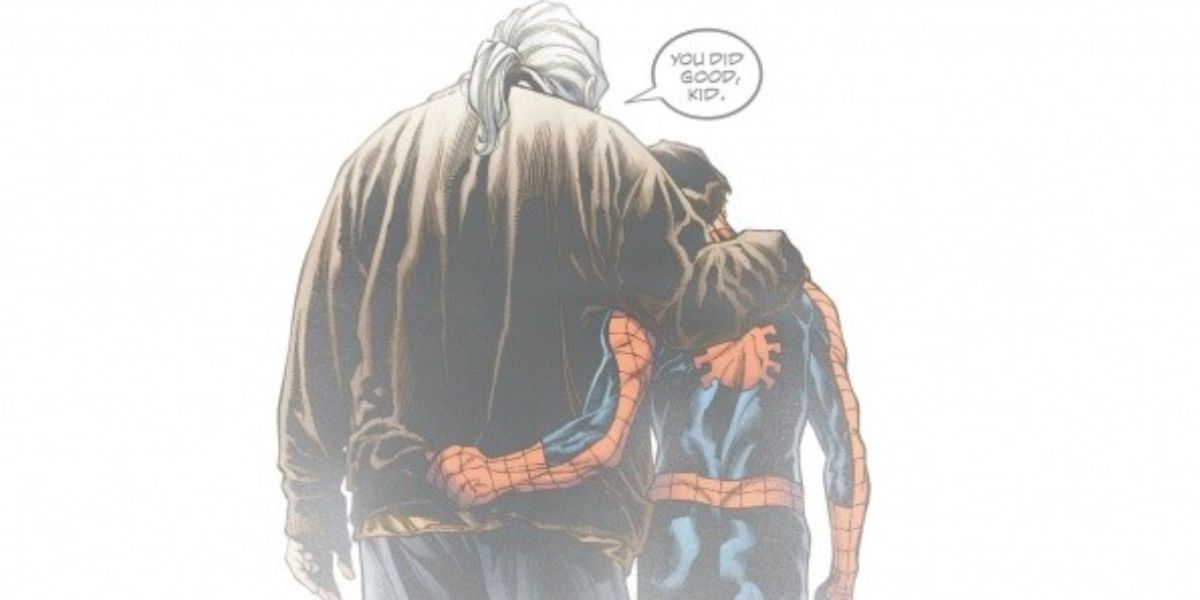Spider-Man may be the jovial kid hero that fans know and love, but he has had his fair share of pain and heartache throughout his career. In his almost 60-year history in comic books, the friendly neighborhood superhero has endured trial after trial, beyond what most people could ever survive.
Fans of the comics know the tragic moments in Peter Parker's life well, and though he always eventually comes out on top, there are moments where all seems lost. In these moments of turmoil come the very saddest lines in Spider-Man comics.
Spider-Man
"But No Matter How Hard I Try--People Die!"
Soul of the Hunter was a one-shot special written by J.M. DeMatteis, also known for the "Kraven's Last Hunt" storyline. The issue dealt with Kraven's death, as well as Spider-Man's guilt for the many that had fallen since he'd taken up the mantle. As the ghost of Kraven drags the hero through a graveyard, he remarks on how everyone he loves ends up dying.
This line rings true to comic book fans, as they think of the long line of losses that Peter Parker has dealt with in his short life. As a character rooted in responsibility, Peter can never fully accept that a loved one's death wasn't his fault, and therefore carries an immense burden every day of his life.
Spider-Man
"If You Can Hear Me, Leah... Sweet Dreams. Sweet, Sweet Dreams."
"Leah," a short story released in Friendly Neighborhood Spider-Man Annual #1, follows the story of a young homeless girl named Leah who imagines that she is soaring through the air with Spider-Man. The final few pages reveal, however, that these imaginings occurred on her deathbed, and she was slipping away at last.
This brutal reality occurs right before Spider-Man's eyes, another death he is incapable of stopping. But, he manages to work up the nerve to whisper that he hopes she'll have sweet dreams, as the last panel shows one last moment of Leah and Spider-Man swinging above the buildings.
The Narrator
"Life. A Series Of Near Misses. And Missed Opportunities."
Spider-Man comics had a tendency to neglect Peter's wife Mary Jane in the early 2000s. The Amazing Spider-Man (vol. 2) #13, depicted the couple at odds with one another just before MJ was about to leave on a trip. Before Peter can make up with her, her plane takes off--then suddenly explodes in the air.
The final page almost mocks the reader, commenting on Peter's missed opportunity to reconcile with his beloved wife. Thankfully, MJ would make her return several issues later, having gotten off the plane before it left the runway, but not without an extended period during which Peter truly believed his wife to be dead.
Mary Jane Watson-Parker
"Face It, Tiger... You Just Hit The Jackpot."
Mary Jane's famous first words to Peter Parker upon their meeting have echoed throughout Spider-Man's history, but the most tragic occurrence comes in The Amazing Spider-Man #545, at the end of the dark and infamous Spider-Man comic book arc, "One More Day." Just as Peter and MJ's marriage is being erased from history, MJ utters these words to her husband one last time.
This storyline is almost universally hated by fans, who spent years following Peter and MJ's marriage only to watch it dissolve through supernatural forces. Even so, this line is haunting and tragic, the utterance of a woman about to lose the love of her life--seemingly forever.
The Narrator
"And A Lean, Silent Figure Slowly Fades Into The Gathering Darkness, Aware At Last That In This World, With Great Power There Must Also Come Great Responsibility!" - Narrator
Amazing Fantasy #15 saw the very first appearance of Peter Parker and his iconic Spider-Man persona. The issue delved into the hero's origins, as his beloved Uncle Ben is killed in part due to his own actions, and the teenage hero learns a very important (and often quoted) lesson.
The first appearance of the maxim that drives Spider-Man's entire character is haunting and tragic. Unlike other versions of Spider-Man's origins, the issue ends there, with no happy ending, no victory, just a broken teenager and with a burdensome responsibility.
Harry Osborn
"I Did It, Peter. Just The Way... You Would Have Done It. A Real Hero... Hey, What Else Could I Do? You're My Best Friend."
The Goblin legacy is something that haunts Spider-Man interminably. In The Spectacular Spider-Man #200, one chapter of that legacy comes to a close with the death of Harry Osborn, the second Green Goblin. Despite his villainous turn, Harry proves heroic in the end, saving his family--and Spider-Man himself, from a raging fire before dying himself.
Harry's last words to Peter bring to a close their long and troubled relationship, from classmates at odds, to best of friends, to mortal enemies, and finally to friends once more. At that moment, despite their history, all Harry sees in Peter is the friend he loved dearly and the hero he admired.
Peter Parker
"That's What I Want You To Do, Aunt May. Let Go. Fly. 'Second To The Right--And Straight On 'Til Morning.'"
Following the death of Uncle Ben, May Parker is Peter Parker's last remaining relative and the closest thing he ever had to a mother. As such, her death was very difficult for Peter to cope with when she finally passed away in The Amazing Spider-Man #400.
Peter tearfully quotes Peter Pan over May's deathbed, a book that May would read to him as a child. Though May would be brought back in later years, there is no denying the emotional intensity of this scene, nor the beautiful tribute it plays to her character.
Spider-Man
"Hey, Kid--What's Wrong? Don't You Understand? I Saved You--You Can't Be--No! Oh, No, No, No--Don't Be Dead, Gwen--I Don't Want You To Be Dead! I Saved You, Honey... Don't You See? I Saved You..."
The Amazing Spider-Man #121 shocked fans when it killed off long-time Spider-Man supporting character and love interest, Gwen Stacy in a traumatic fall from atop the George Washington Bridge. Spider-Man believes he's saved her, only to find that she had already died.
This has become an iconic moment in comics history and is still one of the saddest deaths in Spider-Man lore. As the hero knelt cradling Gwen's body, something broke in him that never truly healed. Even years later, the memory of Gwen's death continued to haunt Peter's life.
Spider-Man
"We Could Not Stop It...But We Are Here Now. You Cannot See Us For The Dust, But We Are Here. You Cannot Hear Us For The Cries, But We Are Here."
Following the devastating 9/11 attacks, Marvel Comics responded in The Amazing Spider-Man (vol. 2) #36, which took the shape of a long-form poem taken from Peter Parker's inner monologue as he does whatever he can to help dig through the debris of the Twin Towers.
Naturally, this issue had a special impact following the tragic day in American history, but choosing Spider-Man as the character to deliver such a line (and many others) proved similarly impactful, as the character is so deeply rooted in New York City iconography. The issue stands as a beautiful tribute to the American spirit in the face of unspeakable calamity.
Peter Parker (Ultimate Version)
"I Couldn't Save Him. Uncle Ben. I Couldn't Save Him... No Matter What I Did. But I Saved You. I Did It. I Did..."
Superheroes die and resurrect constantly in the world of comic books. Fans come to expect departed heroes to return sooner or later. What makes for a good superhero death scene is how impactful it can be in the moment, something that Spider-Man's death in Ultimate Spider-Man #160 does masterfully.
Brian Michael Bendis pays perfect tribute to the character in his last words to Aunt May, harkening back to his origins. The penance for the moment that had haunted Peter Parker since becoming Spider-Man was finally paid--though he hadn't been able to save Uncle Ben, he could die knowing that his Aunt May was safe because of his sacrifice.

